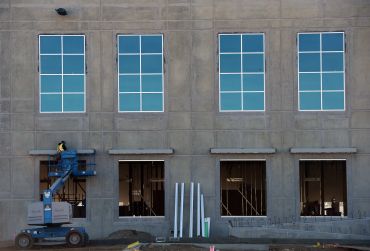Lenders Increasingly Agree to Write Down Commercial Real Estate Loans
By Jotham Sederstrom October 10, 2012 7:45 am
reprintsIn a reversal from just two years ago, lenders are once again agreeing to write down outstanding bank loans extended to real estate investors as the economy continues to rebound, analysts said.
As fundamentals such as rental rates and vacancy rates continue to improve, lending institutions such as J.P. Morgan Chase are increasingly willing to green-light write-downs, what accountants describe as a reduction in the book value of the real estate asset in question.
 “First of all, the banks’ balance sheets are a lot stronger today than they were in 2009 and that gives them a lot more capacity for doing this,” said Robert O’Brien a vice chairman and U.S. real estate services leader at Deloitte. “And, besides that, we’re just seeing better fundamentals.”
“First of all, the banks’ balance sheets are a lot stronger today than they were in 2009 and that gives them a lot more capacity for doing this,” said Robert O’Brien a vice chairman and U.S. real estate services leader at Deloitte. “And, besides that, we’re just seeing better fundamentals.”
Meanwhile, as ratings companies like Standard & Poor’s change their approach to rating properties and the certificates tied to commercial mortgage-backed securities, the market continues to open up, said Kenneth Weissenberg of EisnerAmper.
“The market will basically have to come up with new capital or financing to cover those debts as they become due,” said Mr. Weissenberg.”
While not entirely gone, the days of employing so-called “extend-and-pretend” strategies are dissipating, said Mr. O’Brien.
“It still happens to some extent, but it’s not as prevalent as it was in 2009-2010,” said Mr. O’Brien.
Trying to figure out where the abyss was back then was difficult for everyone—the lenders and the buyers—consequently, as the environment has changed in the last couple of years, the need to pretend and extend hasn’t been as necessary.”


